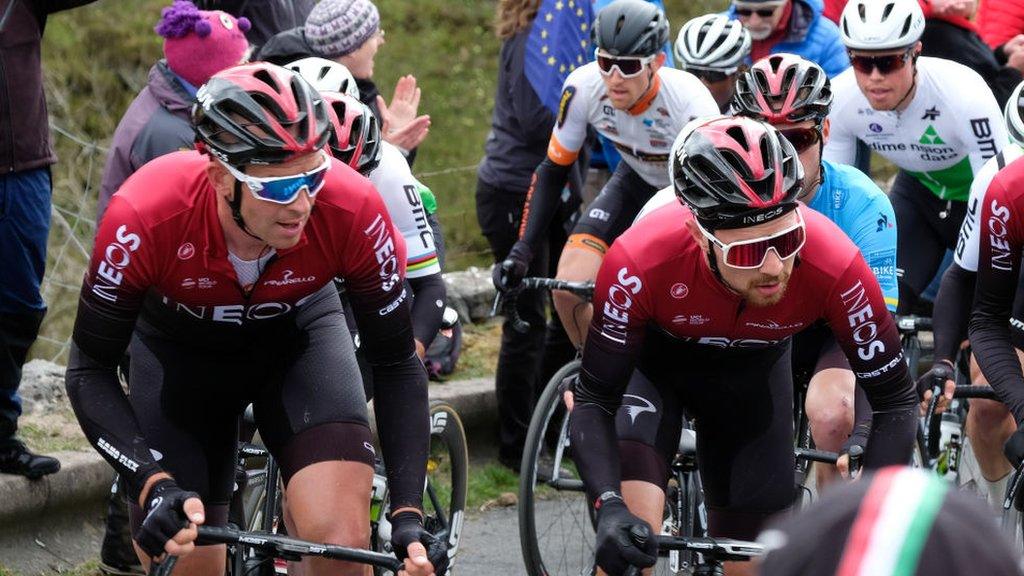Tour de Yorkshire 2022 cancelled
- Published

The race began in 2015 as a legacy event after the county hosted the Tour de France's Grand Départ in 2014
The Tour de Yorkshire cycle race has been cancelled for a third year in a row, its organisers have announced.
The 2020 and 2021 legs of the four-day event, which draws thousands of visitors to the county, were cancelled due to the coronavirus pandemic.
Welcome to Yorkshire said staging the race in 2022 "would be unviable" due to "escalating financial challenges and uncertainties".
British Cycling's chief said the latest cancellation was "very disappointing".
Tourism board Welcome to Yorkshire said the decision was made after "lengthy discussions" over many months with the race co-organiser Amaury Sport Organisation (ASO).
Chief executive James Mason said: "The race is a much-loved international sports event which showcases Yorkshire across the globe.
"So many people involved in the decision-making process understand just how popular the race is.
"We had every intention for the race to go ahead but unfortunately some of the circumstances were out of our control and sometimes you have to make big calls for the right reasons."

Some of Yorkshire's best-known sites, including the cobbled Main Street in Haworth, have featured on previous routes
The race began in 2015 as a legacy event after the county hosted the Tour de France's Grand Départ in 2014.
It is held around the May Bank Holiday weekend and features a four-day men's race of more than 370 miles (600 km) and a two-day women's race.
British Cycling chief executive Brian Facer said the event was "not just about the economic boost that top-level bike racing has brought to Yorkshire, but also in the huge numbers of people who have been inspired to cycle themselves".
Welcome to Yorkshire, which is funded via local councils and tourism businesses, has had well-documented problems with its finances in recent years.
Accounts showed it spent more than £430,000 on investigating and removing former chief executive Sir Gary Verity, who left in 2019 amid concerns over his expenses claims.
Last June, it said the pandemic had left it facing a £1.4m shortfall, and in February this year Sir Gary's successor, James Mason, admitted the body had made "big mistakes" with public money.

Follow BBC Yorkshire on Facebook, external, Twitter, external and Instagram, external. Send your story ideas to yorkslincs.news@bbc.co.uk, external.
- Attribution
- Published11 November 2020

- Attribution
- Published17 January 2020
